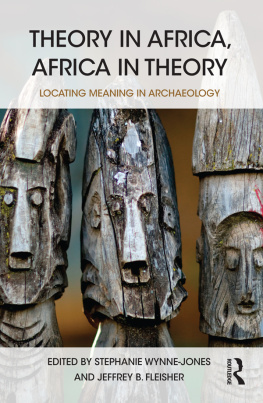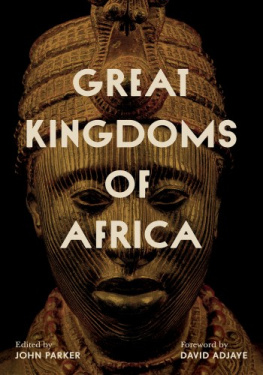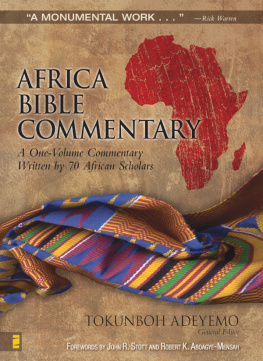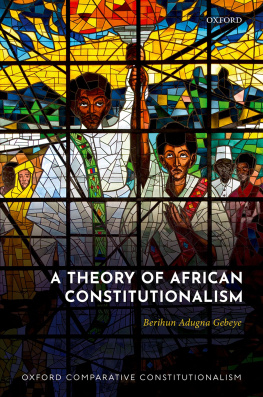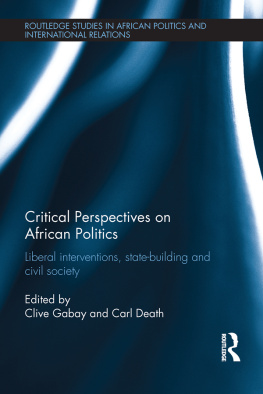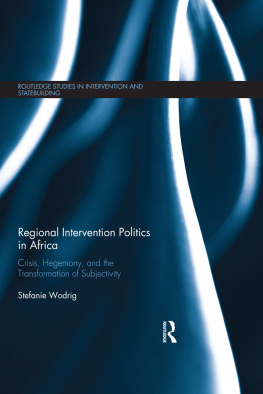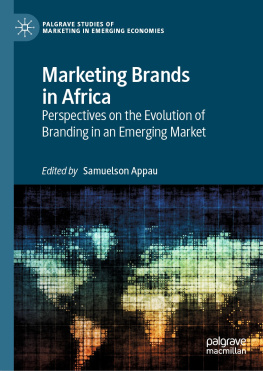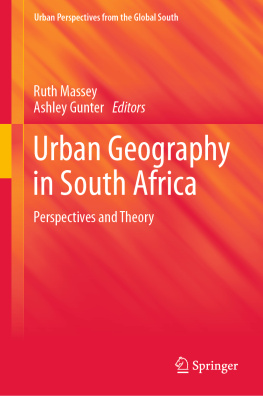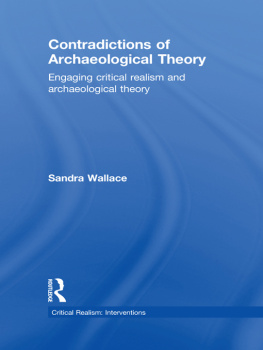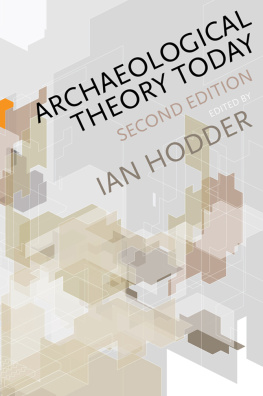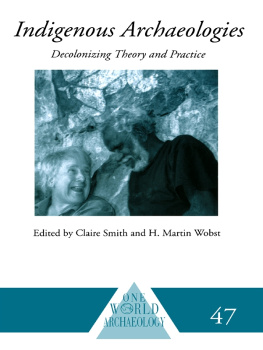2015 Stephanie Wynne-Jones and Jeffrey B. Fleisher
The right of the editors to be identified as the authors of the editorial material, and of the authors for their individual chapters, has been asserted in accordance with sections 77 and 78 of the Copyright, Designs and Patents Act 1988.
All rights reserved. No part of this book may be reprinted or reproduced or utilised in any form or by any electronic, mechanical, or other means, now known or hereafter invented, including photocopying and recording, or in any information storage or retrieval system, without permission in writing from the publishers.
Includes index.
1. ArchaeologyPhilosophy. 2. ArchaeologyAfrica. 3. Excavations
(Archaeology)Africa. 4. AfricaAntiquities. I. Wynne-Jones, Stephanie.
II. Fleisher, Jeffrey B.
CC72.T475 2015
960.1dc232015002392
The idea for this volume was borne out of a session at the US Theoretical Archaeology Group meeting at Brown University in 2010. The session, entitled Theory in Africa: Africa in Theory was designed to fit with an overall conference theme on Locating Meaning in Archaeology . The resulting volume includes many of the original contributions, but has been greatly expanded.
Wendy Ashmore: Professor, Department of Anthropology, University of California, Riverside, California, USA.
Felix Chami: Professor, Department of Archaeology and Heritage, University of Dar es Salaam, Tanzania.
Jeffrey B. Fleisher: Associate Professor, Department of Anthropology, Rice University, Houston, Texas, USA.
Joost Fontein: Director, British Institute in Eastern Africa, Nairobi, Kenya and Department of Social Anthropology, University of Edinburgh, UK.
Per Ditlef Fredriksen: Associate Professor, Department of Archaeology, Conservation and History, University of Oslo, Norway; Department of Archaeology, University of Cape Town, South Africa.
Kodzo Gavua: Professor, Department of Archaeology and Heritage Studies, University of Ghana, Legon, Ghana.
Thomas N. Huffman: Professor Emeritus of Archaeology, School of Geography, Archaeology and Environmental Studies, University of the Witwatersrand, South Africa.
Timothy Insoll: Professor of African and Islamic Archaeology, Department of Archaeology, University of Manchester, Manchester, UK.
Susan Kus: Professor, Department of Anthropology and Sociology, Rhodes College, Memphis, Tennessee, USA.
Paul Lane: Professor of Global Archaeology, Department of Archaeology and Ancient History, Uppsala University, Sweden and Honorary Research Fellow, School of Geography, Archaeology and Environmental Studies, University of the Witwatersrand, South Africa.
Scott MacEachern: Professor, Department of Sociology and Anthropology, Bowdoin College, Brunswick, Maine, USA.
Henrietta L. Moore: Director, UCL Institute for Global Prosperity and UCL Chair of Culture, Philosophy and Design, London, UK.
Akinwumi Ogundiran: Professor and Chair, Africana Studies, Anthropology and History, University of North Carolina-Charlotte, North Carolina, USA.
Franois G. Richard: Associate Professor, Department of Anthropology, University of Chicago, Chicago, Illinois, USA.
Stephanie Wynne-Jones: Lecturer, Department of Archaeology, University of York, York, UK.
16
Anthropology, Archaeology and African Studies
Joost Fontein
Some years ago I heard, on the grapevine, that an anthropology colleague of mine (not an Africanist) had claimed, in a moment of indiscretion, that nothing good had come out of Africanist anthropology for fifty years. At the time this jaded comment regardless of whether in fact it was ever made or made in the way I remember it now fed into my own growing concerns about the marginalization of Africanist anthropology in the discipline as whole. In a small but unpleasant way it seemed to mirror the prejudices and patronizing undertones still often marking populist representations of Africa beyond the continent, in the same way that in some registers African studies is still largely, or perhaps more than ever, understood as equivalent to development studies (see MacEachern, At the same time a parallel, and increasingly acknowledged concern, has been highlighting and supporting the critical role of African scholars within African studies, a field of knowledge production still largely dominated by universities and scholars in the North, for want of a better expression. This volume is a very welcome contribution to this agenda, bringing to the table not only the critical inputs African scholars are making to debates in African archaeology in particular, but also the African roots of archaeological theory-making writ large.
Upon reflection, my colleagues caustic comment probably also reflects one side of a rather peculiar tension between centripetal and centrifugal forces marking British anthropology in the late twentieth and early twenty-first centuries; between, on the one hand, an ever-narrowing set of theoretical, thematic, and methodological foci steering the discipline towards an increasingly exclusivist centre; and on the other, a broadening intellectual engagement with ideas, theories and tools emergent from related disciplines and other intellectual genres on its more creative peripheries. Among the peculiarities of this recurrent but shifting tension in social anthropology is the rather odd association of particular theoretical strands with particular ethnographic regionalisms so while the anthropology of the Middle East and Asia is heavily focused on religion, politics and the state, the anthropology of incommensurability, alterity and ontology has been vanguarded in Papua New Guinea, Mongolia and Brazil. Africa, in anthropological terms, is now over-represented by studies of development, violence, ethnicity, land and (still) witchcraft, in the same way as it once was in terms of, say, kinship, colonialism and (yes) witchcraft. These are very crude characterizations, but they are not entirely without basis. Another peculiarity of anthropologys centrifugal/petal tensions is the rather conceited view (of centrepetalists in particular) that anthropology tends mainly (and perhaps with the exception of linguistics, and more recently philosophy) to give its theory (not to mention its methodologies) to the rest other disciplines in the social sciences and humanities and consequently has nothing to learn from a discipline like archaeology. This has sometimes resulted in the odd outcome that studies of, say, material culture or race (especially in the UK), or even more surprisingly gender are too often still seen as niche thematic foci, rather than contributing to the core of anthropological theorizing. Centrifugalists have tended to take the opposite view, but their creative thinking has, as a result, too often been relegated to anthropologys margins.

